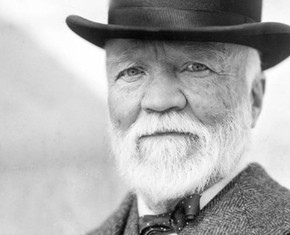The views expressed in our content reflect individual perspectives and do not represent the authoritative views of the Baha'i Faith.
During his final years Baha’u’llah continued to correspond with his followers, who sent him countless messages of loyalty and devotion. Such letters usually included petitions for his blessings. Often they contained questions, and in many cases the believers would tell Baha’u’llah of services they had rendered to the Cause of God, asking that Baha’u’llah accept them.
The believers who addressed him came from every conceivable background. Among them were people of considerable status—wealthy merchants, the learned, and government officials. But others came from the humble classes, such as artisans and menial workers. Often illiterate, they had to ask their more educated fellow-believers to write to Baha’u’llah on their behalf.
Baha’u’llah showered his love and encouragement upon all, whether high or low, exhorting them to live according to the highest moral principles and to be steadfast in service to the Cause of God. Indeed, he often addressed the most tender and loving words to the humblest of his followers. For example, he once received a letter from a believer named Muhammad-Ali, an illiterate man who expressed regret at his own lack of education. He had suffered much in service to the Baha’i Cause, and poured out his sorrows in his letter. Baha’u’llah’s reply reveals the depths of sympathy and love that characterized His relationship with His followers:
The living waters of My mercy, O Ali, are fast pouring down, and Mine heart is melting with the heat of My tenderness and love. At no time have I been able to reconcile Myself to the afflictions befalling My loved ones, or to any trouble that could becloud the joy of their hearts…
The words thou hadst written have, as soon as they were read in My Presence, caused the ocean of My fidelity to surge within Me, and the breeze of My forgiveness to be wafted over thy soul, and the tree of My lovingkindness to overshadow thee, and the clouds of My bounty to rain down upon thee their gifts… I sorrow for thee in thy grief, and lament with thee in thy tribulation… I bear witness to the services thou hast rendered Me, and testify to the various troubles thou hast sustained for My sake. All the atoms of the earth declare My love for thee. – Gleanings from the Writings of Baha’u’llah, pp. 308-310.
Baha’u’llah expressed his love for Ali, saying that his services had been accepted and revealing a prayer for Ali to recite. Baha’u’llah encouraged Ali to persevere in his services with complete reliance on God.
During Baha’u’llah’s years in Akka the Baha’i community steadily expanded in size. Communities of believers were established throughout Persia, in India, and in Russian Turkistan. Although most of the original converts to the Faith came from Muslim backgrounds, this period saw increasing numbers of Jews and Zoroastrians, as well as a few individuals of Christian background, embrace the new religion. These believers came from traditions of long-standing mutual animosity, but their common acceptance of Baha’u’llah and their devotion to his teachings transformed their bitterness into love. Separation gave way to unity, and the Baha’i community grew from strength to strength. Baha’u’llah himself considered this one of the greatest proofs of the power of the Word of God.
Baha’u’llah’s public reputation also grew. Although he remained a prisoner in name, he was now famed throughout the region for his wisdom. Many believers and people of other faiths visited Bahji, seeking the honor of meeting him personally and benefitting from his guidance.
But Baha’u’llah’s success provoked hostility and persecution from the rulers and the clergy, who feared his growing influence and the clear evidences of the honor and prestige now accorded him by people from all walks of life. They continued to spread rumors about him and to foment persecution of his followers, especially in Persia. News of his followers’ sufferings inevitably caused Baha’u’llah tremendous grief. He counseled them to be patient, even as he was patient, and to trust in God. He also promised that their sacrifices would not be forgotten by God. Through them the Cause of God would be made victorious, and they would all enjoy the fruits of their own steadfastness in the world beyond.
Next: The Western Scholar Meets the Eastern Prophet
















Comments
Sign in or create an account
Continue with Googleor